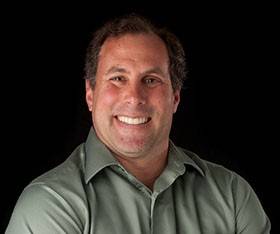Richard Nafshun, Ph.D.

Richard Nafshun
Faculty, Oregon State University
B.S., Chemistry, California State University, Stanislaus
M.S., Science Education, and Ph.D., Inorganic Chemistry, Oregon State University
Richard Nafshun’s focus in graduate school was materials for lithium ion cells. After earned his Ph.D., he accepted a job in industry. However, he recalls, he quickly realized that he wanted to get back to academia, where he could work on projects he was passionate about, and also work with young people. Within a year, he returned to academia, where he has worked ever since.
Today, as a faculty member Oregon State University, Nafshun’s primary responsibilities are teaching and conducting research. He has served as councilor of the ACS Oregon local section and as a member of two ACS national committees, and has been involved with ACS since his undergraduate days as a member of his university’s ACS student group.
I also enjoy the discovery aspect of my job. When I was in industry doing chemical research, I found it rewarding to look at new molecules, make new compounds and characterize them, and so on.
Primary job responsibilities:
Primarily, teaching and research. My time is generally divided between teaching (about 40%), and meetings, administrative/outreach/service, and research (about 20% each). I teach an interesting variety of courses and students. For example, I teach general chemistry to freshman undergraduates, but I also teach several graduate courses, including non-traditional instructional techniques and a unique faculty mentor experience and practicum.
My research is in the area of chemistry education, and focuses on how students learn chemistry. We do quite a bit in the area of technology, looking at non-traditional instructional methods, online delivery system of chemistry concepts, and how students work and learn in small groups and large classroom environments.
Work environment:
Office/classroom/lab. I do not share space with colleagues.
Work schedule:
54 hours/week. It’s very fast-paced, and there is always something to do.
Travel schedule:
I make a conscious effort to limit my travel during the academic year, traveling more during the winter, spring, and summer breaks. When I do travel, I’m often going to conferences or meeting with colleagues.
Tools you can’t live without:
Excel, Word, html editor, and e-mail.
What you like most about your job:
I value the collaborative aspect highly. When I was doing my research work in industry after earning my Ph.D., I remember spending long periods basically in my own world. In fact, I never felt so isolated. Of course, some of the research was interesting and involved discovery, and we’d have periodic meetings with the group, but otherwise it was a very independent experience, and I didn’t enjoy it. Here in academia, in contrast, I’m always interacting with hundreds of young people, colleagues, and graduate students. To me, it feels much more interesting and alive.
I also enjoy the discovery aspect of my job. When I was in industry doing chemical research, I found it rewarding to look at new molecules, make new compounds and characterize them, and so on. In academia, there is discovery as well. To me, it’s wonderful to take part in a meeting or brainstorming session where we end up thinking about something that has never been done before — and then get to actually pursue it. It’s a very dynamic environment in which to work.
Best productivity trick:
Complete tasks during the 10-15 open times. Multitask. Try and delegate
Best career advice you’ve received:
Pursue a career where there are opportunities. In my case, I’ve found that ACS can be very helpful for being able to anticipate where the opportunities are. Even during my years as an undergraduate, I remember reading issues of C&EN that were in the office of the chemistry department, and gaining useful insights.
Essential habit you wish you’d started earlier:
Save more money in retirement accounts earlier.
Favorite ACS resource:
People. Being involved in the Society has provided me with so many ways to meet and interact with colleagues from across the country. For example, I’ve served as the councilor of the ACS Oregon local section for close to nine years, and have also served on national committees, including the Local Section Activities Committee, and more recently the Society Committee on Education (SOCED). All of these activities are opportunities to interact with colleagues from other institutions in my own region and across the country.
How you've benefited from being an ACS member:
Collaboration — which can take place in a wide variety of formats. From meeting with and learning from colleagues through conferences to serving on committees, the organization not only gives me a chance to broaden my network, but also a variety of forums for interacting and collaborating.

